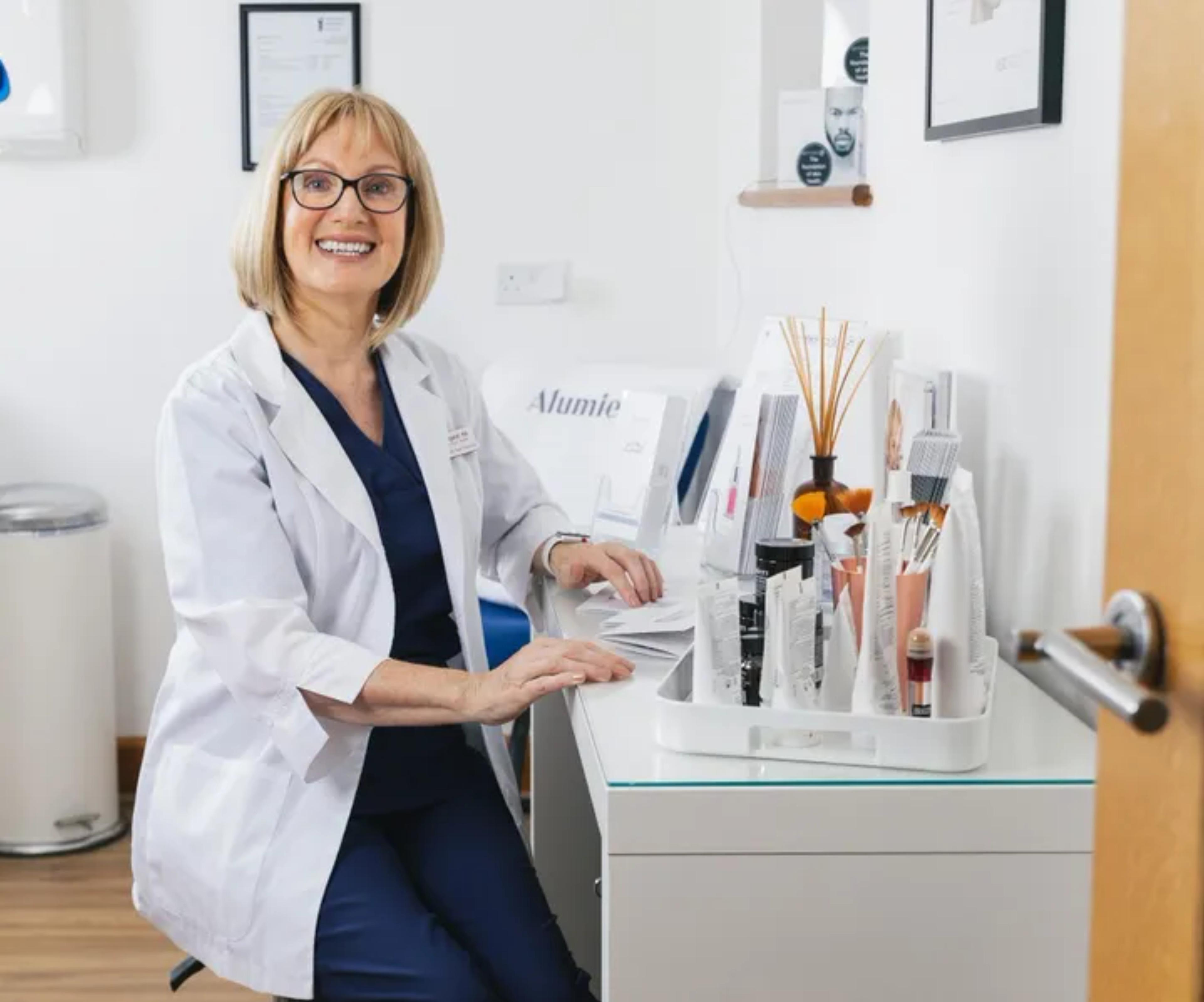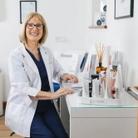We all love the sun, but how many of us can honestly say we're dedicated to protecting ourselves from it as best we can? Aesthetic nurse Margaret Hill shares her skin cancer story to warn people the dangers of not using SPF, and explains just how real - yet so avoidable - skin cancer is in many cases.
Don't Let My Skin Cancer Story Be Yours: Use Sunscreen
Where it all started
Late summer 1996
“I’m sorry to say that lump does look a little suspicious, but I’ll need to do a biopsy to be sure.”
Two weeks later
“Regrettably, the results confirm it is cancer and it will need to be surgically removed.”
How terrifying those words were when I first learned I had skin cancer on my face. At that time, I didn’t know anyone else who had had it, and there were very limited patient discussion forums available, even though skin cancer - even at that point - was one of the most common cancers in the world. Ok, mine was a non-melanoma Basal Cell Carcinoma (BCC), so no big deal right? Wrong! BCCs are malignant tumours and, whilst rarely fatal, they can be locally aggressive. Biopsy helps determine the level of risk the tumour presents. High risk tumours include those that involve the central face, nose and eye area.
My first BCC involved my eyelid. Fortunately, I did not delay in seeking a medical examination. The earlier such tumours are diagnosed and treated, the better the outcome. These cancers rarely spread to lymph nodes or other organs, but can grow quite large and invade small nerves and local structures, causing serious structural damage and disfigurement. I’ve since had two more BCCs diagnosed and removed, and one other negative biopsy. All these on my face from within the area of my eye but, thankfully, all were caught early.
I’ve been very lucky. However, I can’t stress enough how devastating each episode was to me whenever I found a new one and subsequently heard those words ‘it’s cancer’.
I was particularly anxious about how much healthy tissue actually needed to be surgically removed around the lesion in order to ensure an adequate safety margin was achieved. So much so that three years ago, I opted for removal of my most recent facial lesion by Mohs micrographic surgery, as the surgeon can see where the cancer stops during the operation, thus allowing you to keep as much healthy skin as possible.
Margaret following surgery to remove skin cancer tumour.
How sunscreen protects skin: the benefits
Turning to my professional work as an aesthetic nurse, the majority of people that come to see me in clinic do so for advice about how to improve the appearance of their skin - usually that of their face, neck and hands. They are often looking for a particular treatment for a feature or features they would dearly love to improve or regain. I listen carefully in order to consider the most suitable treatment for them and carry out a structured medical assessment, which includes skin health.
During the skin health assessment I ask what sunscreen they use and how frequently it is applied. This might not seem terribly important, but it is. Without regular protection of the skin, the effects of treatment to improve appearance are diminished. Let me elaborate.
Whilst we are all aware of the danger exposure to ultraviolet (UV) rays pose to our skin, many of us see sunscreen as an important protection for use on sunny days and summer holidays, and of course it is. However, these rays are, by no means, confined to strong sunshine or the summer alone. UV rays can penetrate cloud cover, go through glass and bounce off surfaces such as water, sand, pavements and even grass. Used regularly, all year round, sunscreen helps prevent sunburn, skin cancers and also protects against the signs of premature ageing, such as liver spots, actinic keratosis (rough skin patches) and solar elastosis (thickened, dry, wrinkled skin). Delaying the process of ageing skin is, therefore, crucial to achieving better and longer lasting outcomes in anti-ageing skin treatments.
How to use sunscreen properly
So, what does the term ‘used regularly’ actually mean, and when should I start? Quite simply, use sunscreen daily, come rain or shine - and no, it’s never too late to start. Treat it as part of your daily skincare routine, and choose a good quality, broad spectrum sunscreen with a sun protection factor (SPF) of at least 30. If you are mostly outdoors each day, an SPF of 50 or greater is strongly recommended.
Many people don't put sunscreen around their eyes, because the high street, chemical type hurts if you get it in your eye. However, it's so important to protect the delicate eye skin, so I suggest using a mineral SPF that's more gentle on the skin.
Please, please, PLEASE wear your SPF
I have fair skin, I’ve a history of skin cancer, and I’m in the high risk category for further skin cancer, so you’ll understand this has been an important part of my daily skincare routine for a number of years now. But I must confess, before my first diagnosis, sunscreen was something I bought for sunbathing and summer holidays, and I would never have dreamt of applying it close to my eyes. How things have changed, and how I wish I had started to regularly use sunscreen when I was much younger, ensuring coverage around the eyes, nose and ears.
My skin deserves the better attention it now gets and is certainly so much healthier for it - and so am I. Can I still enjoy sunny days safely? Of course, and so can you.
This is my story…..don’t let it be yours too!
Margaret Hill x
Want some professional advice on how to protect your skin every day? Find a skin expert on Glowday.

